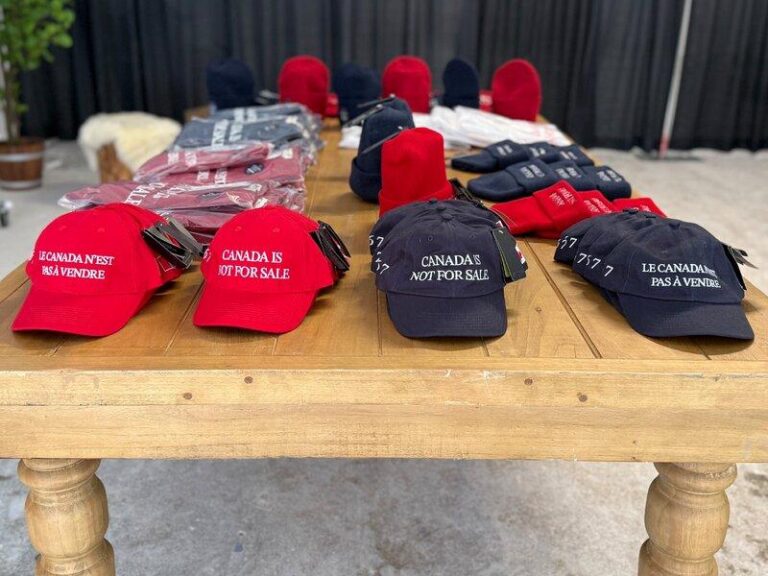In recent years, the red “Make America Great Again” (MAGA) hat has become a potent symbol of political division in the United States. Now, in certain communities, the decision to wear this emblematic headwear is sparking not only social backlash but also tangible economic consequences. This opinion piece explores the growing sentiment that donning a MAGA hat should cost individuals and businesses patronageŌĆöparticularly in communities where the hatŌĆÖs associations clash deeply with local values and experiences. As political identities continue to influence consumer behavior, the debate over the MAGA hat transcends mere fashion, raising questions about free expression, community standards, and the price of political statements in everyday commerce.
Business Impact of Political Symbolism in Local Communities
Political symbols carry weight far beyond mere expression; in certain localities, they have become unmistakable markers of community valuesŌĆöor the lack thereof. Wearing a MAGA hat in some areas is no longer a neutral act but a visible declaration that can alienate potential customers and business partners alike. For businesses, the choice to embrace or reject such symbolism can mean the difference between thriving and facing boycotts, protests, or public backlash. Economic vitality in these communities often hinges on a collective sense of inclusion, respect, and the rejection of divisive rhetoric implicitly endorsed by such overt political displays.
Local businesses must weigh the tangible risks and benefits associated with symbolic political allegiance. Consider this simple breakdown of the potential business impacts in politically sensitive communities:
| Business Action | Potential Community Response | Economic Consequence |
|---|---|---|
| Promoting MAGA apparel | Community protests; social media backlash | Loss of customer base; declining sales |
| Neutral political stance | Maintains broader customer appeal; avoids controversy | Stable revenue streams; possibility of growth |
| Openly rejecting divisive symbols | Support from progressive customers; potential backlash from opposing groups | Potential short-term dip; long-term loyalty increase |
- Community cohesion strongly influences economic opportunities.
- Businesses may serve as de facto community leaders reflecting local values.
- Economic consequences can ripple beyond profit marginsŌĆöaffecting employment and neighborhood stability.
Understanding the Cultural Divide and Its Economic Consequences
The cultural schism that the MAGA hat symbolizes is more than just politicalŌĆöit represents a profound divide in values, beliefs, and social perceptions that heavily influence economic activity. In communities where diversity, inclusion, and progressive ideals are cornerstones, flaunting this symbol can alienate potential customers and partners. Business owners have increasingly recognized that brand identity is inseparable from the cultural conflicts embedded in American politics. Wearing or endorsing such polarizing paraphernalia may lead not only to a loss of face but also to measurable financial consequences.
Economic impacts tied to cultural positioning can be summarized as follows:
- Decreased patronage from demographics opposed to extremist symbolism
- Loss of contracts or partnerships in culturally aware markets
- Negative media exposure leading to diminished brand reputation
- Employee dissatisfaction and turnover affecting operational efficiency
| Community Type | Potential Customer Loss | Brand Damage Severity |
|---|---|---|
| Urban, diverse | High (30-40%) | Severe |
| Suburban, mixed | Moderate (15-25%) | Moderate |
| Rural, conservative | Low (5-10%) | Minimal |
What emerges is a stark reality: cultural identity markers have immediate economic ramifications. For many businesses, the financial risk of associating with divisive symbols simply isnŌĆÖt worth it, especially within communities where inclusivity is not negotiable but foundational.
How Consumer Choices Reflect Community Values
Consumers do not make decisions in a vacuum; their choices mirror the ethos of the neighborhoods and cities they inhabit. Supporting businesses that openly align with values promoting inclusivity and respect sends a powerful messageŌĆöone that helps shape a community’s character. When an emblem like the MAGA hat represents divisiveness and exclusion to many, patronizing those who display such symbols can undermine the very fabric of local cohesion. This dynamic illustrates the economic power held by everyday shoppers, revealing that spending can either reinforce or challenge prevailing social norms.
Consider the influence this collective behavior holds, mapped out in a simple contrast between communities:
| Community Trait | Consumer Action | Effect on Local Business |
|---|---|---|
| Welcoming Diversity | Boycotting businesses endorsing divisive symbols | Encourages inclusive practices, fosters diverse patronage |
| Neutral or Tolerant | Indifferent spending habits | Allows polarizing symbols to persist unchecked |
By choosing where to spend, community members actively curate their environment. This reality transforms customer dollars into a form of civic dialogue that reinforces collective values or prompts reckoning within marginalized pockets of commercial space. It is this economic accountability that ensures businesses reflect the ethos of the communities that sustain them.
Strategies for Businesses to Navigate Politically Charged Environments
Businesses operating in polarized political climates face unique challenges that require a delicate balance between upholding corporate values and maintaining customer trust. Transparency in communication is crucial; companies must clearly articulate their stances on contentious issues while respecting diverse viewpoints within their consumer base. This openness fosters credibility and helps avoid misunderstandings that can escalate into public relations crises. Additionally, proactive community engagement through listening sessions, surveys, and inclusive forums can reveal underlying sentiments, enabling businesses to tailor their services and messaging without alienating significant portions of their audience.
Adopting a strategic approach to internal policies is equally important. Companies should invest in diversity training and conflict resolution programs to equip employees with tools to navigate workplace tensions stemming from political differences. Moreover, creating a code of conduct that outlines expectations regarding political expression helps establish boundaries that protect both staff and clientele. The table below highlights practical measures businesses can implement to sustain their reputation and operational stability amidst political polarization:
| Strategy | Description | Benefit |
|---|---|---|
| Clear Communication | Publicly define company values and policies | Builds trust and reduces backlash |
| Community Engagement | Host listening sessions and gather feedback | Increases customer loyalty and insight |
| Diversity Training | Educate employees on inclusive practices | Enhances workplace harmony |
| Code of Conduct | Set boundaries for political expression | Minimizes internal conflicts |
In Summary
In an era where political expression intersects with everyday life, the implications of wearing a MAGA hat extend beyond personal beliefs, resonating deeply within communities shaped by diverse values and histories. As this discussion unfolds, it is clear that businesses and patrons alike must navigate a complex landscape where symbols carry weight and consequences. Ultimately, decisions about engagement and commerce in such contexts reflect broader societal debates about identity, inclusion, and accountability.







